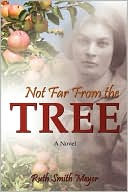No, this isn't a theological rant about goofed-up evangelists. It's something of practical use for anyone who runs into the occasional new Christian or even an unsaved enquirer. I am going to challenge established wisdom, however.
Specifically: Where do you tell such people to begin reading the Bible?
There are two obvious answers, and for most people they're both wrong.
1. Start in Genesis and keep going. This can kind of work, though I would recommend a very entry-level Bible. Though I generally dislike the New Living Translation, it's not a bad choice for someone who knows nothing whatever about the Bible. (He should graduate to a better translation after going through NLT once or twice, however.)
The problem is that while this gives a good background--too many Christians know nothing about the Old Testament--it gets the reader to the Gospels rather late. That brings us to Option Two:
2. Read the Gospel of John. No. Seriously no. Why not?
a. While the language of John is fairly simple (it is a good starting point for reading Greek, though the Johannine Epistles are even better), the content is not. There are several theological digressions that will probably lose most beginners.
b. It isn't one of the synoptics, which should probably be read as a group and early on.
c. It doesn't set up for the rest of the New Testament very well. This is important, and I'll come back to it.
Other Options. Let's go in usual order:
Matthew. Begins with a genealogy. (What fun! Beginners should ignore genealogies.) Takes a first-century Jewish standpoint, which will mislead a lot of twenty-first-century Jews, much less Gentiles, given the shifts in Judaism over the millennia.
Mark. Strong action and short, but the alternate ending could throw some people. The resurrection is covered a little too briefly.
Luke. By process of elimination, this is my preference. Why? Luke was as close to a modern historian/biographer as you can find in the NT, and he was writing evidently for a Gentile audience with minimal knowledge of the OT. That said, he gives a good feel for OT writing in the first chapter or so. The teaching/action balance is good. (It does have a genealogy, and beginners should skip it or skim it, but at least you've got a handle on the story by then.)
But the most important reason to begin with Luke is Acts. Luke prepares the reader for Acts, which gives early church history and provides background for the epistles (especially Paul's). Once someone has read Luke and Acts, he should be ready to start looking at the epistles and the OT. In fact, he can get a study Bible and some reading plan and go to it at this point.
Next up, I'll explain how I would approach the Bible as a whole.
Mathyness, Mathyness!
8 years ago







